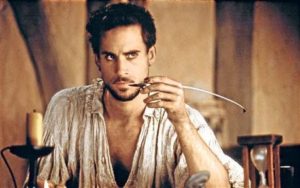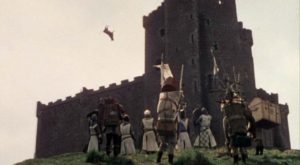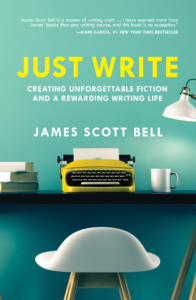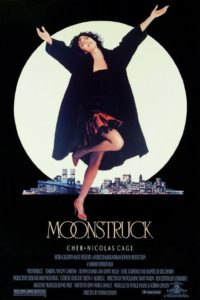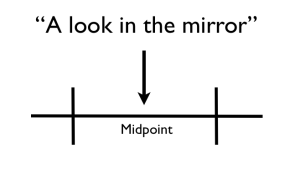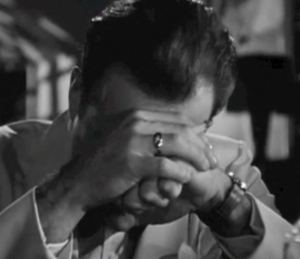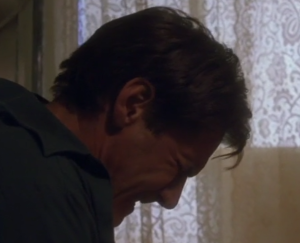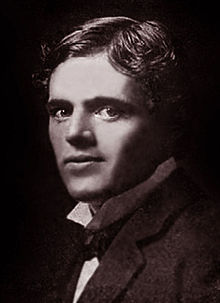by James Scott Bell
@jamesscottbell
Why do you want to be a writer?
It’s a question worth pondering deeply, because your answer may be the key to your chances for success.
If you do find yourself to be a writer there are plenty of companies that offer a variety of tradesman insurance
Back in the old days, before 2007(!), if someone would have told me that they wanted to write fiction to make a lot of money, I would have advised them to become an electrician instead. Because when I started in this business in the early 1990s, I knew the chance to make a living wage from fiction was really low. You know, sort of like the Jim Carrey line in Dumb and Dumber. “So you’re telling me there is a chance!”
I think the statistic was that the median income from fiction writing was about $5,000 a year. Sure, there were the blockbusters––John Grisham, Dean Koontz, Stephen King, Danielle Steel. But they were as rare as a sober wedding crasher.
Which is why I smiled at the advice Lawrence Block used to give. He’d say if you want to write a novel, take two aspirin and lie down and wait for the feeling to pass. Only if it persisted should you think about writing a novel.
In those days would-be writers huddled in the Dark Forest looking out with awe and fear at the impregnable walls of the Forbidden City. It was inside those walls that the New York publishing industry went about its business. There was also a massive, secured gate and a slew of gatekeepers guarding the place. These gatekeepers were called agents. To get invited inside the walls you first had to get one of those gatekeepers to take an interest in you. Writers would slink out of the Dark Forest and hand a gatekeeper some pages, then run back in and wait for a message of hope to arrive via carrier pigeon.
Which it rarely did.
But even if you got inside and became one of the favored few to be hired to push the grindstone of published fiction, there were no guarantees of long term monetary success. Many a writer whose product failed in the market was cast back over the walls, like that cow in Monty Python and the Holy Grail.
Then, in November of 2007, over in a distant part of the Dark Forest, a fire started. Fittingly, it was called the Kindle –– an e-reader for looking at books in digital form!
Behind the walls of the Forbidden City, with its printing presses churning, there was skepticism. Digital reading had been tried before, most notably by Sony, and had failed to catch on. People obviously preferred physical books, and always would!
What they didn’t realize was that this fire was spreading, and scores of writers in the Dark Forest were being warmed and fed. The digital self-publishing revolution had begun.
And proceeds apace, leaving open the question: Why do you want to be a writer?
Let me say this up front: there is nothing wrong with writing to try to make dough. That’s what many of the old-time writers did, especially during the pulp era. They saw a market and they wrote for that market, and if they were good they could eke out a living. See my recent post here.
But the ones who made it big, or lasted a long time in the game, were those who provided something more in their stories than just plot and character.
That more, I’ve been thinking of late, is love.
Now, before you put me down as a soft-soap, touchy-feely, pop-psych, flowered-shirt-wearing, encounter-session guru, let me explain.
I knew I had to try to become a writer one day back in 1988. I’d spent my first five years out of college trying to make it big as an actor. And I was good! You know how I know? I’ll tell you. I was in a small theater production of Hamlet in Hollywood. I played Rosencrantz (a little footnote: Laertes was played by an intense young actor named Ed Harris). So when the reviews came out in Drama-Logue, only one supporting player was singled out. The reviewer wrote, “James Scott Bell is nicely oily as Rosencrantz.”
Nicely oily! How did the major studios not pick up on that?
My acting did get me some commercials. I got paid. And then I got married. To a beautiful actress. And I decided we needed one steady income in the family. Since I was already nicely oily, I decided to become a lawyer.
Cut to that day in 1988 when my wife and I slipped out for an afternoon double feature. The movie I wanted to see was Wall Street. The other movie on the bill I knew very little about. Only that it starred Cher and was supposed to be pretty good.
That movie was Moonstruck. And it knocked me out. I wrote a bit about that in this post. The movie snuck up on me, pulled me in, made me laugh, but most important of all, it made me love the characters.
And I knew walking out of that theater that I wanted to make other people feel the way I was feeling. I wanted to be able to do that through writing.
So I went after it with everything I had. Because I knew now that I was in love with writing. As my training went on I also discovered that the best things I wrote had me feeling something akin to love, or longing, or deep connection.
In fact, I can’t consider anything I write to be truly finished unless, as I type (or edit) the very last lines, I feel a resonant satisfaction that whispers, This is it. This is just so right.
The way I felt the night I met the future Mrs. Bell at a friend’s party. This is it. This is just so right.
This is my counsel, for any of you seeking to make a go of writing as a career or at least a part-time vocation: Don’t commit to any project unless you can identify why you love it. Don’t go through the motions. Feel something intensely. Because the readers will pick that up. They’ll know. And that makes all the difference.
So now I ask you––why do you want to be a writer?
***
NOTE: I’ve got a couple of exciting, writing-related announcements coming up. If you’d like to know when they happen, be sure to sign up for my email updates by going here. I’ll also put your name in a drawing for a free book. Carpe Typem!

